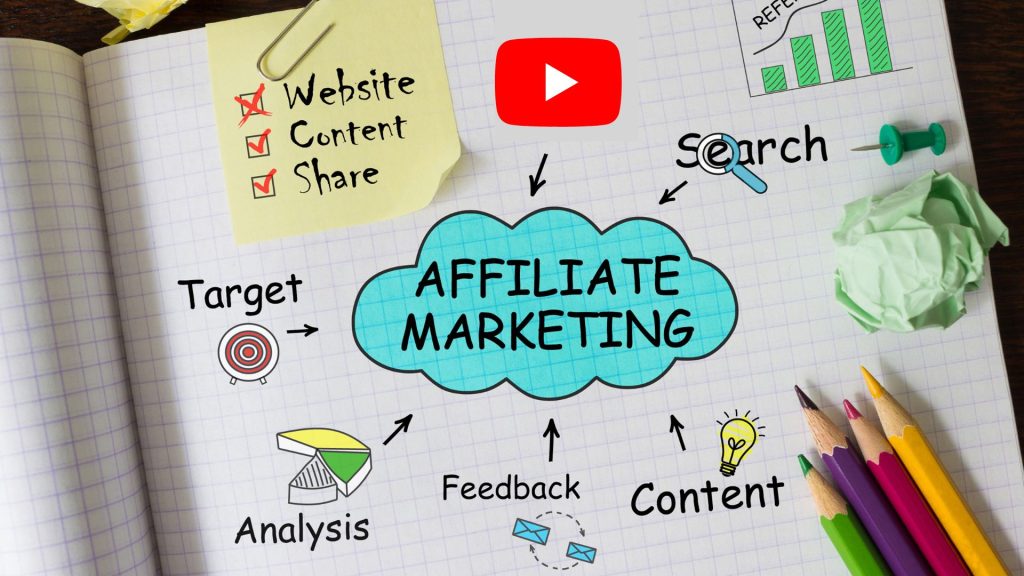Affiliate marketing with no website: Affiliate marketing has grown in popularity as a profitable internet business concept. It allows individuals to earn passive income by promoting other companies’ products or services and earning a commission for each successful referral. While many affiliate marketers use websites as their primary platform, it is feasible to participate in affiliate marketing without having your own website. We will look at tactics and approaches for successful affiliate marketing without a website in this post.
Introduction
Affiliate marketing offers a win-win situation for both marketers and companies. Marketers can earn commissions without the need to create their own products, while companies can leverage the power of affiliate marketers to expand their customer base and drive sales. Traditionally, having a website has been considered essential for affiliate marketing. However, with the rise of various online platforms and marketing techniques, affiliate marketing without a website has become a viable option.
What is Affiliate Marketing?
Affiliate marketing is a performance-based marketing method in which individuals known as affiliates promote other firms’ products or services. Affiliates are paid a commission for each sale or action produced by their promotional efforts. It’s a low cost approach for businesses to reach a larger audience and enhance sales, since affiliates act as brand evangelists, driving people to the company’s website or landing page.
Benefits of Affiliate Marketing
Affiliate marketing offers several benefits for both affiliates and companies. It allows affiliates to make passive revenue by marketing companies or services they believe in. They can work from anywhere, set their own schedules, and have the potential for unlimited earnings. On the other hand, companies benefit from the extensive reach and targeted marketing efforts of affiliates, allowing them to tap into new markets and increase brand exposure.
How Does Affiliate Marketing Work?
In affiliate marketing, affiliates sign up for affiliate programs offered by companies. They receive unique affiliate links or promo codes that track their referrals. The affiliate receives a commission when someone clicks on their affiliate link or uses their promo code to make a transaction. The tracking system ensures that affiliates are credited for their efforts and accurately compensated for the sales they generate.
affiliate marketing with no website
While having a website can be advantageous for affiliate marketing, it is not a prerequisite for success. There are alternative platforms and strategies that affiliates can leverage to promote products and generate commissions. Here are some effective methods for affiliate marketing without a website:
Social Media Platforms for Affiliate Marketing
Social media networks like as Facebook, Instagram, Twitter and Pinterest provide a large audience for advertising affiliate items. Affiliates can create engaging posts, share product reviews, and include their affiliate links in the captions or bio sections. By building a strong following and engaging with the audience, affiliates can drive traffic and generate sales.
Email Marketing for Affiliate Marketing
Email marketing is another powerful tool for affiliate marketers. By building an email list of subscribers interested in a particular niche, affiliates can send targeted marketing emails promoting relevant affiliate products. They can provide valuable content, share product recommendations, and include affiliate links within the emails. With compelling copy and effective email marketing strategies, affiliates can nurture their subscribers and drive conversions.
YouTube and Video Marketing for Affiliate Marketing
Video content has become increasingly popular, and platforms like YouTube offer immense opportunities for affiliate marketers. Affiliates can create informative and engaging videos that showcase products, provide tutorials, or offer reviews. They can include affiliate links in the video descriptions or within the videos themselves. By optimizing their videos for search and promoting them through social media and other channels, affiliates can reach a wide audience and earn commissions.
Blogging and Content Marketing for Affiliate Marketing
While a website is not necessary, starting a blog can be a valuable asset for affiliate marketing. Affiliates can create high-quality content related to their niche, offering valuable information and product recommendations. Within the blog posts, they can incorporate affiliate links naturally. By optimizing their blog posts for search engines and promoting them through social media and guest blogging, affiliates can attract organic traffic and convert readers into customers.
Influencer Marketing for Affiliate Marketing
Influencer marketing has become a powerful strategy in the digital age. Affiliate marketers can collaborate with influencers in their niche who have a large following and engaged audience. Influencers can create sponsored content or promote affiliate products through their social media posts, stories, or videos. By leveraging the influencer’s credibility and reach, affiliates can generate significant traffic and boost conversions.
Tips for Successful Affiliate Marketing without a Website
While conducting affiliate marketing without a website requires a different approach, the following tips can help affiliates succeed in their endeavors:
Choose the Right Affiliate Programs
Choose affiliate programs that are relevant to your specialty and target audience. Look for programs with reputable companies, competitive commissions, and reliable tracking systems. Conduct thorough research and choose programs that offer high-quality products or services that you genuinely believe in.
Create Engaging Content
Focus on providing captivating and informative content for social media posts, videos, blog entries and email newsletters. Provide informative product reviews, share personal experiences, and offer helpful tips. Engage your audience, reply to comments and establish a trusting and honest relationship.
Build an Email List
Collect email addresses from interested individuals through opt-in forms or lead magnets. Nurture your email list by providing valuable content and exclusive offers. Personalize your emails and segment your subscribers according to their preferences. Regularly communicate with your email list and promote relevant affiliate products strategically.
Leverage Social Media
Choose social media networks that are relevant to your target demographic. Create a consistent presence by posting regularly, engaging with your followers, and leveraging relevant hashtags. Provide value through informative posts, entertaining content, and exclusive promotions. To succeed engage your audience respond to their inquiries, and foster a community centered on your specialized knowledge.
FAQs
1. Can I make money with affiliate marketing without a website?
Yes, it is possible to generate money with affiliate marketing without having a website. By utilizing social media platforms, email marketing, video marketing, blogging, and influencer partnerships, you can promote affiliate products and earn commissions.
2. How do I choose the right affiliate programs?
When choosing affiliate programs, consider factors such as the relevance of the products to your niche, the reputation of the companies, the commission rates offered, and the reliability of their tracking systems. Conduct thorough research and choose programs that align with your target audience’s interests and offer high-quality products or services.
3. Do I need a large following on social media to succeed in affiliate marketing without a website?
While having a large following on social media can certainly help, it is not the only determining factor for success in affiliate marketing without a website. It’s more important to have an engaged and targeted audience who are interested in the products or services you promote. Focus on building a genuine connection with your audience, providing valuable content, and promoting relevant products that resonate with them.
4. Can I use multiple platforms for affiliate marketing without a website?
Absolutely! In fact, utilizing multiple platforms can help you reach a wider audience and diversify your promotional efforts. Consider leveraging social media platforms, email marketing, video marketing, blogging, and influencer partnerships simultaneously to maximize your reach and increase your chances of success.
5. How long does it take to see results in affiliate marketing without a website?
The results you see in affiliate marketing without a website can vary based on factors such as content quality, promotional strategies, audience size and engagement and niche competitiveness. It’s important to be patient, consistent, and continually refine your approach. With persistence and dedication, you can start seeing results within a few months or even sooner.
Conclusion
Affiliate marketing without a website is a viable option for those looking to earn passive income online. By leveraging social media platforms, email marketing, video marketing, blogging, and influencer partnerships, affiliates can effectively promote products and generate commissions. It’s crucial to choose the right affiliate programs, create engaging content, build an email list, and leverage social media platforms strategically. With dedication, consistency, and a focus on providing value to the audience, anyone can succeed in affiliate marketing without a website.
Read Out our latest Article: WHAT IS AFFILIATE MARKETING & HOW DOES IT WORK







